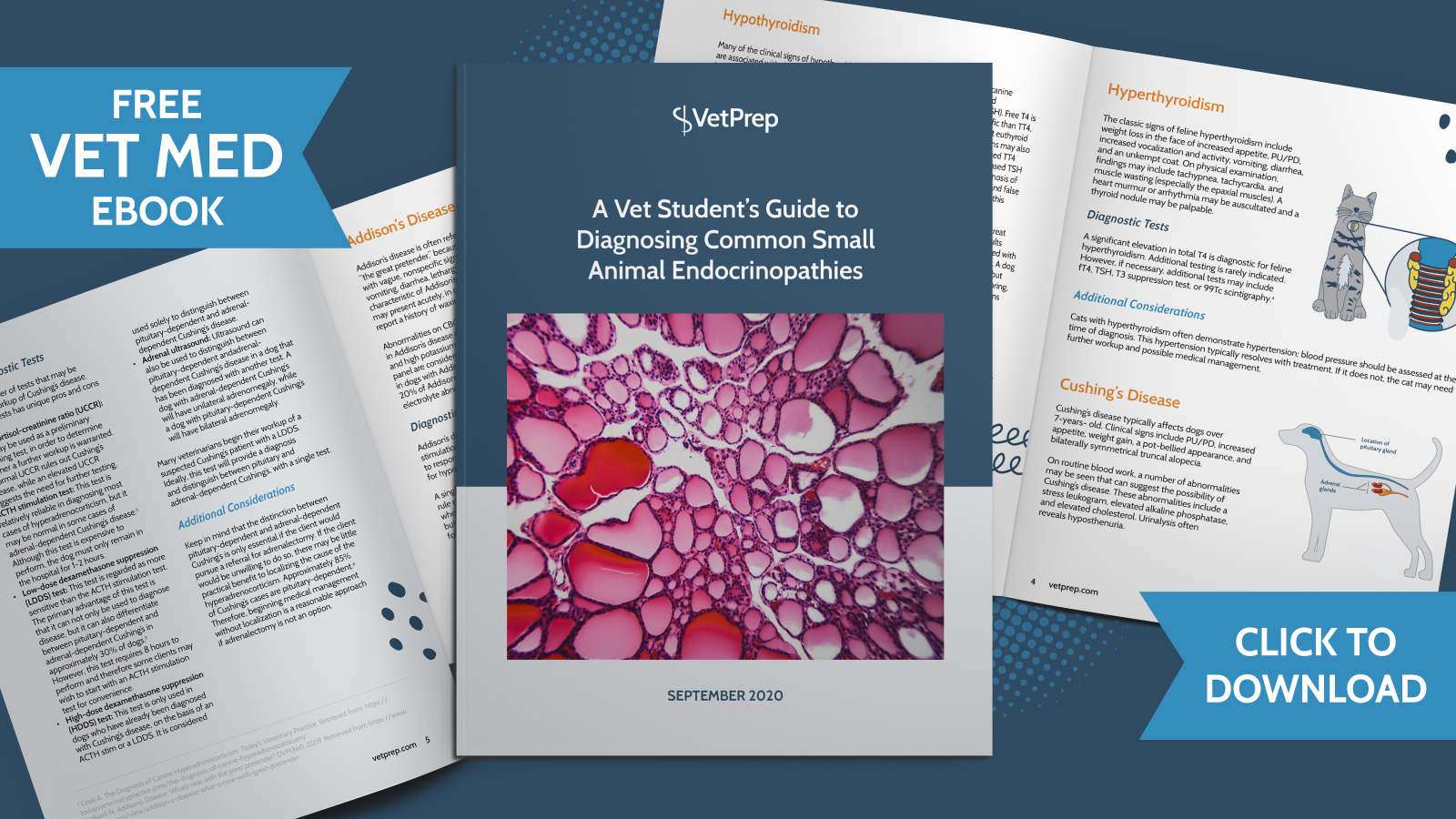
As you might have heard, September is National Suicide Prevention Month. If there’s a profession that needs to pay special attention to suicide prevention, it’s certainly veterinarians! A 2019 study found that suicide risk in male veterinarians is 1.6 times higher than the general population, while the risk in female veterinarians is 2.4 times higher than the general population.1
And our vet tech friends aren’t immune, either; the same study found that vet techs had an even higher suicide rate than veterinarians.1 Clearly, this is an issue that all of us need to be aware of, so that we can do our best to protect ourselves and our colleagues.
Why does our profession have such a high suicide rate?
Although there are many possible explanations for the high suicide rate in our profession, no one really knows the true reason why this is the case.

Consider the following factors:
- Ease of access to pentobarbital: The 2019 suicide study found that if deaths attributable to pentarbital are excluded, the suicide rate for veterinarians is similar to other populations.1 This suggest that ease of access to pentobarbital may play a role.
- Different views on euthanasia/suicide: Because we provide euthanasia to relieve our patients’ suffering on a regular basis, vets may have different views on suicide than the rest of the population.2
- Personality characteristics: Veterinary medicine attracts people with certain personality characteristics, such as extreme empathy and a close bond with animals. Additionally, the vet school admissions process selects for a particular type of student. Individuals who pursue a career in veterinary medicine and are accepted to veterinary school may have inherent personality traits that predispose them to suicide.2
- Professional isolation: Many veterinarians work in small practices, with limited contact with other veterinarians.2 This professional isolation may contribute to overall feelings of isolation and decreased mental health.
- Workplace stresses: Challenging medical cases, client financial constraints, dealing with difficult clients, ethical dilemmas, and other workplace stresses may play a role in suicide.2
- Financial stress: Many newer graduates have significant student loans, which may contribute to their overall stress levels and produce a sense of hopelessness.
Ultimately, there is no single answer or explanation for why veterinarians die of suicide more frequently than other members of the public. The explanation is likely multifactorial.
Are there resources that can help?
Fortunately, there are a number of resources available to help any veterinarian experiencing mental health difficulties.
The American Veterinary Medical Association (AVMA) has a number of resources available for veterinarians and veterinary team members. These can be accessed on the AVMA website, in a section titled Get Help. This page contains links to a number of suicide prevention and mental health resources, both veterinary-specific and for the general public. Your state veterinary medical association (VMA) may also have resources available.
Don’t underestimate the importance of one-on-one support. While friends and family can be a valuable support network, a licensed mental health professional can also be invaluable during times of mental stress. If you have a challenging schedule of classes or clinics, you may want to look into online counseling options, which often have evening or weekend availability.
Finally, if you’re in a state of crisis, don’t hesitate to contact the National Suicide Prevention Hotline at 1-800-273-8255. This hotline consists of a national network of crisis centers, which have come together to offer 24/7 support to individuals in crisis.3

Take care of yourself
When you’ve spent the past 10-15 years of life preparing for veterinary school and your veterinary career, it’s only natural to allow vet med to play an enormous role in your life. Remember that you are more than solely a (future) veterinarian! Strive to develop a healthy work/life balance by taking time to develop hobbies, interests, and relationships outside of veterinary medicine. Doing so can improve your ability to cope with the multiple challenges that this profession will likely throw your way.
References
- Witte TK, Spitzer EG, Edwards N, Fowler KA, Nett RJ. Suicides and deaths of undetermined intent among veterinary professionals from 2003 through 2014. J Am Vet Med Assoc. 2019;255(5):595-608. doi:10.2460/javma.255.5.595
- Stoewen DL. Suicide in veterinary medicine: let's talk about it. Can Vet J. 2015;56(1):89-92.
- National Suicide Prevention Lifeline. Retrieved from: https://suicidepreventionlifeline.org/



